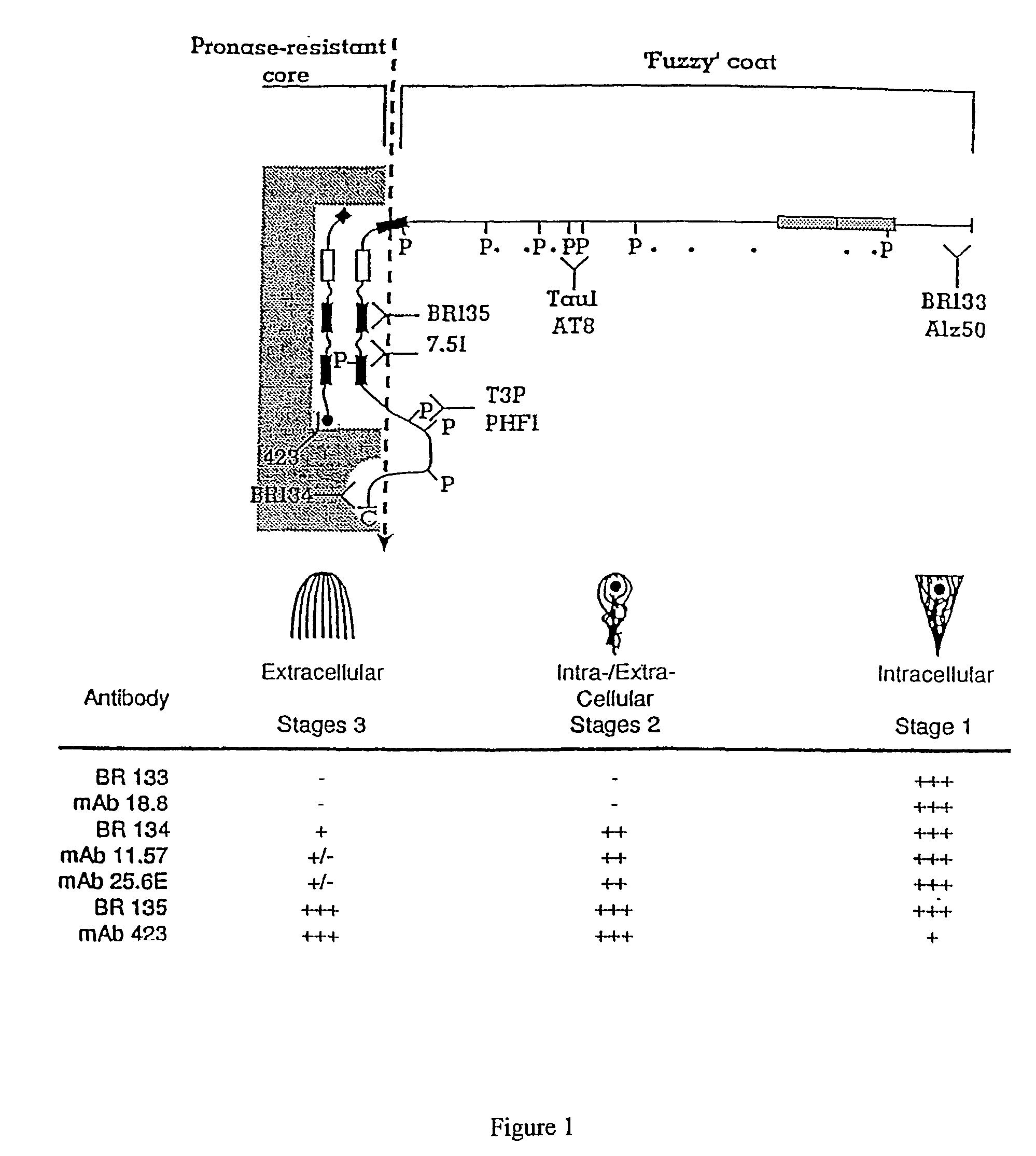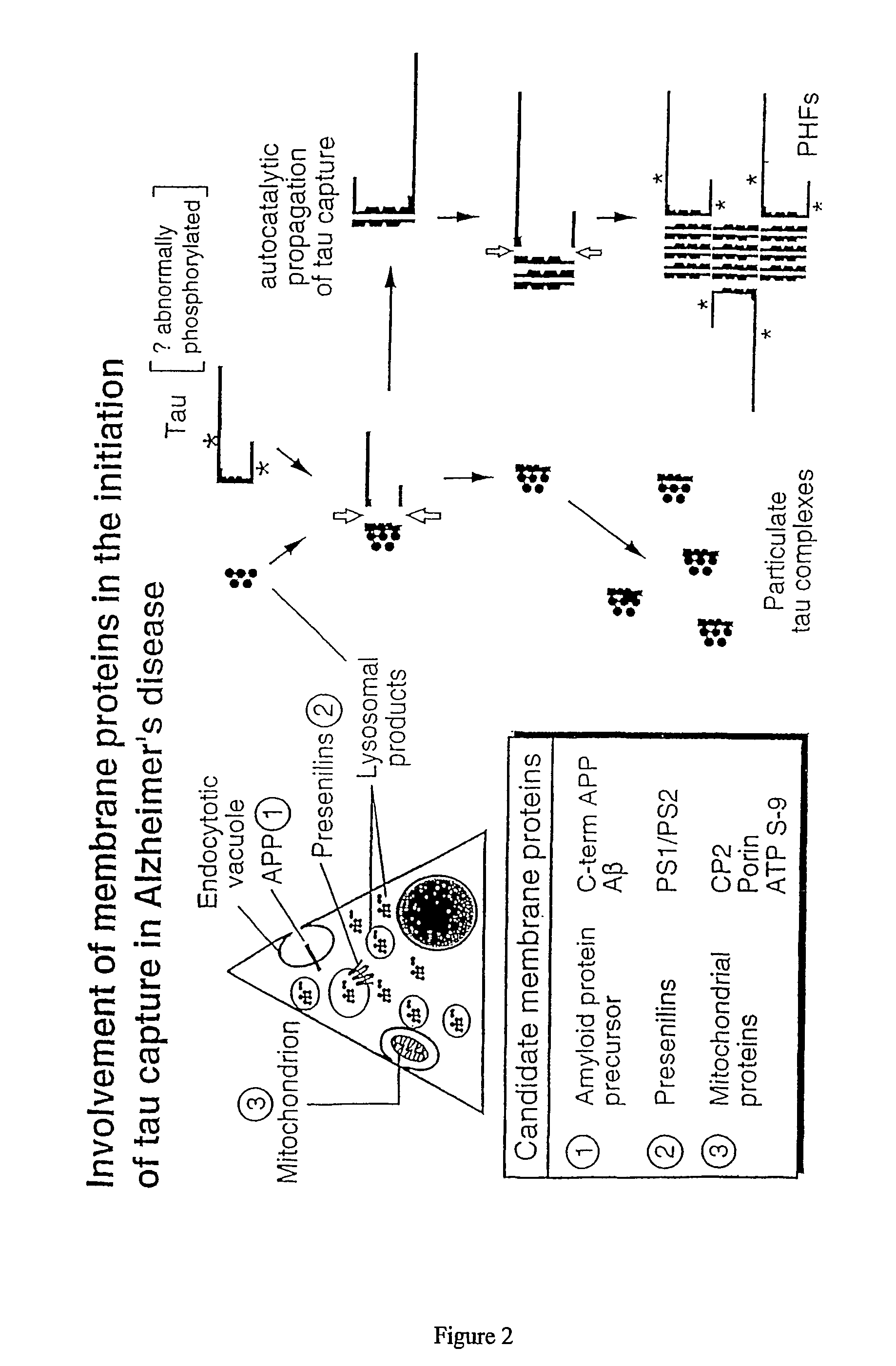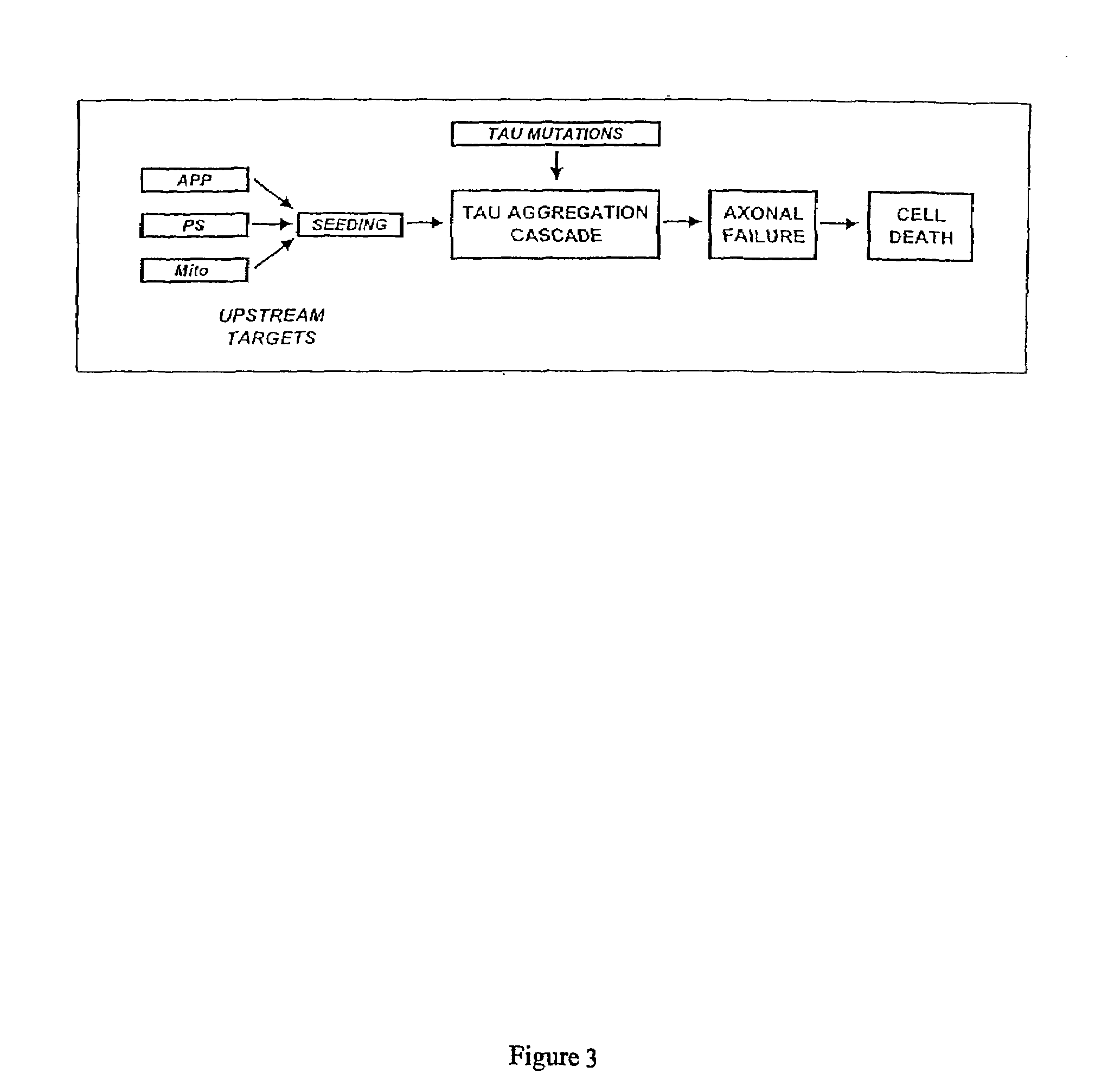Materials and methods relating to protein aggregation in neurodegenerative disease
a neurodegenerative disease and protein aggregation technology, applied in the field of materials and methods relating to protein aggregation in neurodegenerative diseases, can solve problems such as system inability to maintain reproducibility
- Summary
- Abstract
- Description
- Claims
- Application Information
AI Technical Summary
Benefits of technology
Problems solved by technology
Method used
Image
Examples
example 1
Constitutive Expression of Full-Length, Truncated and Mutated tau
[0274]Expression of tau in eukaryotic cell lines was sought to generate a cellular model of tau aggregation under physiological conditions which did not suffer from the limitations of lipofectin-based approaches. This involves the expression of full-length tau and truncated tau fragments for both normal tau and tau carrying pathogenic mutations.
Full Length tau
[0275]When normal full-length tau (T40) was transfected into cells (3T3 and NIE-115) it was expressed and involved in the assembly of the microtubule network within the cells.
Truncated tau
[0276]Initially the cDNA for truncated tau fragment from the core of the PHF, corresponding to fragment 297-391, was transfected into non-neuronal 3T3 fibroblasts: this truncated tau was selected since it is: (i) present in the PHF-core; (ii) detected as deposits in AD brain tissue during the early stages of the disease; (iii) capable of supporting the catalytic capture and propa...
example 2
Inducible Expression of Truncated tau
[0280]In a further attempt to create a stable, reproducible system, without the toxicity associated with constitutive expression, inducible expression of the core-tau fragment of the PHF (i.e. 297-391—which is 12 kD) was attempted.
[0281]Several inducible systems for expression of proteins in eukaryotic cells were tried, although the preferred system was the “lac switch” system. In this system, two vectors are incorporated into cells, typically 3T3 or 3T6 fibroblasts which do not express any endogenous tau protein. The first, the p3'SS vector codes for constitutive expression of the lac I gene, and expressors are selected on the basis of hygromycin resistance. The second, pOPRSVICAT incorporates the DNA coding for the tau protein fragment under the control of a strong RSV promoter which contains operator sequences from the Lac operon. Cells which incorporate this vector are selected on the basis of neomycin resistance. Cells which have incorporate...
example 3
Expression of tau in Stable Cell Lines According to Invention
[0283]In view of the results above, a further system was used as follows. Tissue culture cell line DH 19.4.1.4 and clones thereof were based on 3T6 cells (ECACC No: 86120801 Mouse Swiss Albino Embryo Fibroblasts) expressing full-length, four repeat human tau under the control of an inducible promoter and truncated human tau (295-391) under the control of a constitutive promoter.
[0284]Cells expressing T40 under the control of an inducible promoter, T40.22.10, were transfected (by lipofection) with the pZeo295-391 plasmid. Positive cells were selected for by resistance to zeocin at 400 μg / ml. Expression of truncated tau on a background of inducible expression of full-length tau was confirmed by Western blot analysis with Mab 7.51.
[0285]FIG. 21 illustrates the inducible expression of full-length human tau only in 3T6 fibroblasts in two cell lines. T40.22 shows low level background leakage of full length tau in the uninduced s...
PUM
| Property | Measurement | Unit |
|---|---|---|
| time | aaaaa | aaaaa |
| concentrations | aaaaa | aaaaa |
| concentrations | aaaaa | aaaaa |
Abstract
Description
Claims
Application Information
 Login to View More
Login to View More - R&D
- Intellectual Property
- Life Sciences
- Materials
- Tech Scout
- Unparalleled Data Quality
- Higher Quality Content
- 60% Fewer Hallucinations
Browse by: Latest US Patents, China's latest patents, Technical Efficacy Thesaurus, Application Domain, Technology Topic, Popular Technical Reports.
© 2025 PatSnap. All rights reserved.Legal|Privacy policy|Modern Slavery Act Transparency Statement|Sitemap|About US| Contact US: help@patsnap.com



